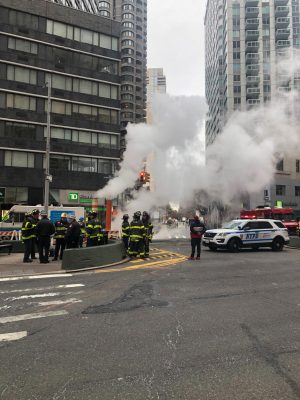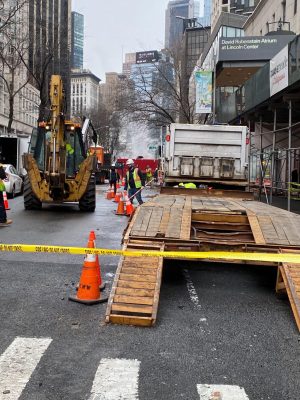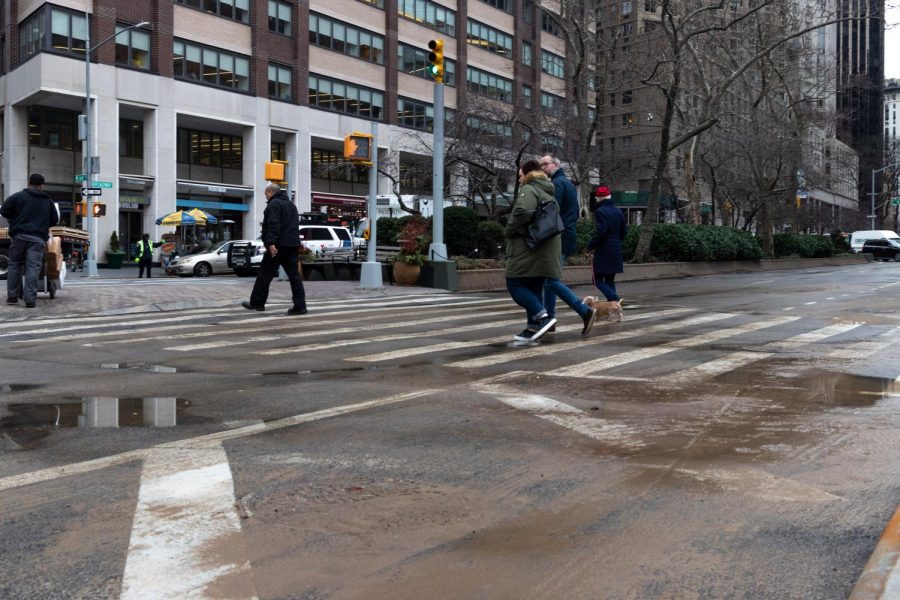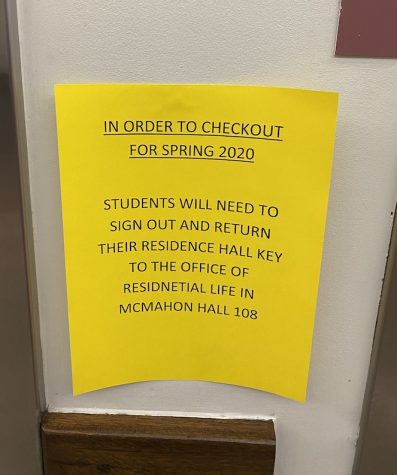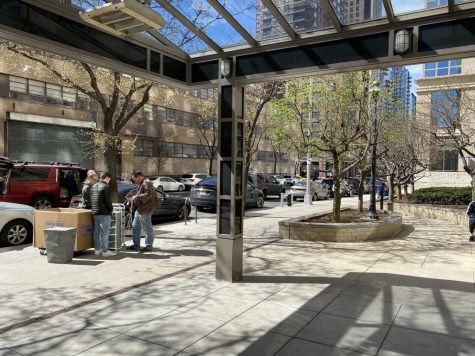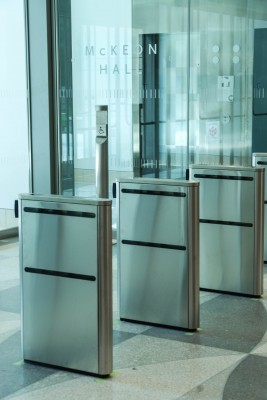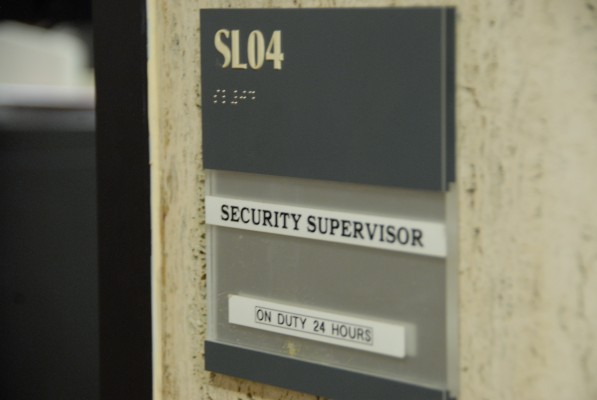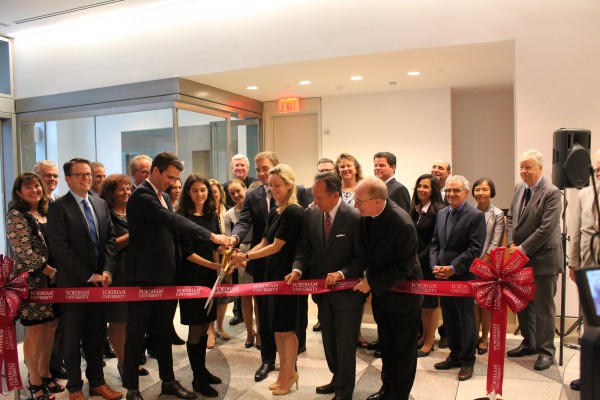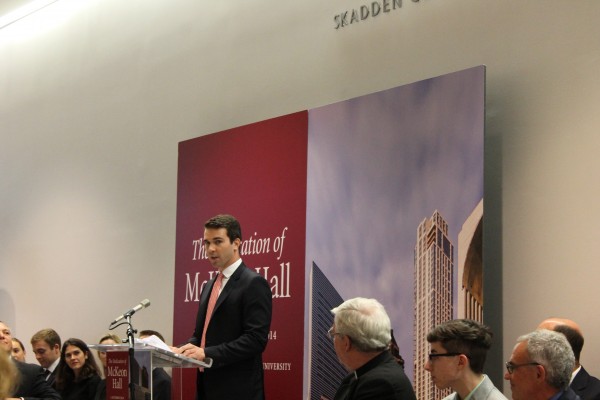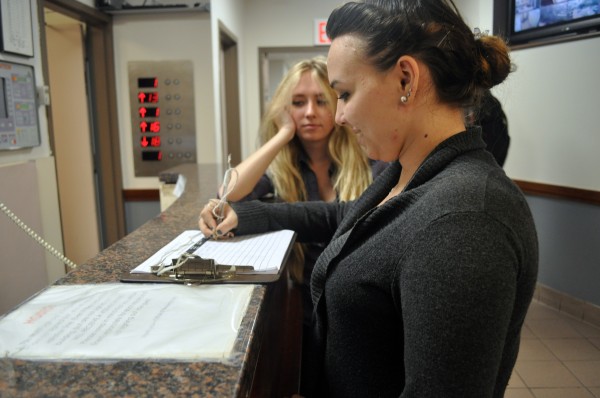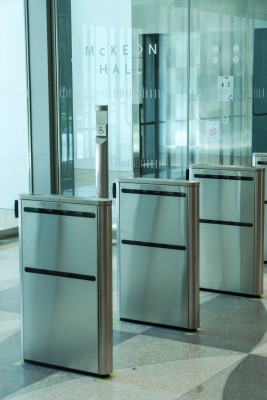“Without the dorms, I would be living in the streets,” Isabel Piazza, FCLC ’23, said.
Piazza is an international student from Peru who depends on student housing to provide a secured home.
On March 9, one week before spring break, the Office of Residential Life (ResLife) sent an email encouraging all residential students to return home after the Office of the President announced that it would suspend all face-to-face instruction for two weeks with the hope to resume classes on March 30.
When the novel coronavirus outbreak in New York City reached a state of emergency on March 13, Fordham University made the decision to cancel all face-to-face instruction for the rest of the semester. ResLife emailed residential students to return home immediately and not come back to campus.
At Fordham University, many students, both domestic and international, consider the University to be their primary residence during the academic year. The emergency move-out mandate left some students struggling to coordinate last minute travel plans during the ongoing pandemic.
Piazza originally had plans to travel to Hawaii for spring break leaving on March 14. After Fordham suspended classes on March 9, Piazza moved her Hawaii trip up two days and scheduled a flight home to Peru on March 30, in the case that the university moved to online classes for the rest of the semester. She had received authorization from ResLife to stay in the residence hall until March 30.
While in Hawaii, Piazza received an email from the university revoking her authorization to stay. “I responded with an email stating that I needed to stay in the dorms until my flight home as I didn’t have anywhere else to stay once I got to New York,” she said.
According to Jenifer Campbell, senior director of ResLife, when approving students to stay in the residence hall, ResLife asked “students to explain any severe personal circumstances and evaluated every request individually.”
Piazza said the response she received to her request for housing was an automated message repeating the policy for students to be moved out by March 20.
“I had to book an overnight flight to New York and made it to the dorms on the 20th to get all of my essentials out of the dorm,” she said. When she arrived at McKeon Hall to retrieve her belongings, she was informed that the friend she brought with her to help carry her belongings was not able to be signed in to the building and that she only had 15 minutes to access her dorm.
Campbell explained that in order to uphold social distancing procedures for the students and staff’s safety, ResLife is capping the number of students approved to move out per day, and residents are responsible for managing their own belongings.
The residence halls also utilized the “Express Check-out” process, which entails filing a room report and depositing room keys into an envelope, according to Campbell.
While in McKeon, Piazza came in contact with one of the resident directors who was on duty at the time. She explained to him the same circumstances that she included in her housing request, which was turned down. “He was very sympathetic and helpful, however he couldn’t give me more than 15 minutes at the dorm that day,” she said.
The resident director filed a report on behalf of Piazza, explaining her situation and requesting a later date for her to officially move her belongings out of the dorm. She required a later date to move out because the Embassy of Peru told her they will only allow flights into Peru until March 31 — after that, she would not be allowed back to her home country.
Piazza received confirmation from the university to officially move out of the residence hall on March 25, and in the meantime, she managed to find a temporary place to stay in a studio apartment with a family member in the city until her flight.
The premature closure of residence halls left many other students without a guaranteed residence for the rest of the academic year.
Anna Moneymaker, FCLC ’22 and staff writer for The Observer, already scheduled a flight back to California for spring break and stayed in McMahon Hall until March 12, packing enough of her possessions with the expectation of returning in one week.
As she relies on student housing for a permanent address, she submitted a Google Form with ResLife requesting permission to come back to campus on March 22, which she was granted.
The day after Moneymaker returned home, March 13, ResLife mandated all students to move out of the residence halls “no later than Friday, March 20,” with the exception of international students.
ResLife said their change in policy was a part of the university decision to protect the “health and safety of all members of the Fordham community.”
Moneymaker, who is not an international student, had her return request revoked, and back in California, she did not have a permanent place to stay. “My parents take care of my grandparents so they live with them in an apartment. And so not only would that be a little tight, but also at this time it would not be safe if I stayed with them because of COVID-19,” Moneymaker said.
Moneymaker’s aunt and uncle have been able to take her in during this time. She expressed her gratitude for having the opportunity to have a place to live for the moment, but feels as though Fordham should not have offered her the option to come back to campus if they were considering closing for the rest of the semester.
“They shouldn’t have told me I was able to come back. Even though it would have been extremely inconvenient for me to try and pack everything in three days, I would have rather done that than leave all my stuff across the country,” Moneymaker said.
“
I’m basically paying for the most expensive storage unit in the world right now.”
— Anna Moneymaker, FCLC ’22
Being a Resident Assistant (RA) adds an additional layer of complexity to the emergency move-out situation. RA Danielle Eisenberg, FCLC ’21, said ResLife student staff received instruction around midnight on March 14 that they were required to be on their respective duties until March 16 at 10 a.m. Afterward, they would be officially relieved from RA duties for the rest of the semester.
Eisenberg is an international student from Austria and struggled to find time to pack up her things and find a storage unit in the short window of time. She was also scheduled to be on duty until March 15, which prevented her from leaving the residence hall.
Amid managing her responsibilities as an RA, she had trouble organizing travel plans out of the city to meet the required March 16 deadline.
There were no flights to Austria, so she was going to go to Israel to be with her sister who is a resident there, but “due to the rapidly changing situation, there were new travel restrictions put into place for non-citizens of Israel,” she said.
Not knowing how long it would take until she received permission from the Israeli embassy to enter the country, she emailed ResLife asking for an exemption from the move-out.
“This was particularly stressful seeing as I was staying at a friend’s apartment for the time being, but was eager to go at least somewhere I could stay for the remainder of this crisis,” she said.
ResLife responded that she needed to fill out a form and then would receive further information about her request.
“Given that there were no flights to Austria and European countries were increasingly restricting traveling in the Schengen regions as well, I was stressed,” Eisenberg said.
In the end, she had to organize a flight to Munich, Germany, and take a train from there to Vienna, Austria, elongating her public transportation time, even though Americans are being told to socially distance themselves from others.
Eisenberg said that she does not blame the university for their decisions in the moment, as “they didn’t have more information.” However, she added that if RAs were relieved of responsibilities earlier that week, it would have been easier for her to coordinate flights before the pandemic concerns began to escalate.
“I could have taken an earlier flight and made it to Israel to be with my family instead of by myself in Austria, with a little Tom Hanks-like stint in New York at the airport,” she said.
Leaving campus within the time constraints has become a financial burden for some students. Moneymaker feels that Fordham has not been transparent about potentially refunding housing fees and has written an Opinions piece on her thoughts. Other universities, such as Loyola University Maryland and St. John’s University, are working toward granting their students partial housing and meal plan refunds.
Because of the swift departure from campus, and the original expectation to return, many students still have belongings left in the dorms. In Moneymaker’s eyes, “I’m basically paying for the most expensive storage unit in the world right now.”
The university originally set a window of time between March 30 and May 17 for students to return to the campus and retrieve their belongings left in the dorms. Those plans changed after Gov. Cuomo issued an executive order closing all non-essential businesses and non-profit institutions on March 22.
The Office of the President notified students that due to the order, students will not be able to return to the university to retrieve their belongings until the order is lifted, with the exception of returning briefly for “critically important belongings (i.e. medications, academic materials, or important papers).”
For students who live farther away from campus, even the important belongings left in their dorm rooms may not be worth the flight. Native California resident Drew Bernstein, FCLC ’22, has yet to make any plans to return to the residence hall.
“I’m not comfortable with flying right now,” she said.
Bernstein left for the weekend on March 13 before spring break with plans to finish out the week on campus. During her flight, she received a text message from her friend informing her about the news to not return to campus for the rest of the semester.
“I had to leave my job without giving notice. All my food I just bought is going bad in the fridge. Most of my stuff is still in the apartment,” she said.
Students like Bernstein and Moneymaker who live far from campus and have left their belongings will have to assume the financial burden of an additional round trip flight, one that they never knew they had to make. Although on-campus student workers will still be getting paid, students with jobs off campus like Bernstein have lost their means of income.
Graduating seniors at Fordham University, whose last semester was cut short, had to leave the campus prematurely with no reason to return to campus other than to collect their belongings.
Madelaine Diaz, FCLC ’20, was planning on staying in the city during spring break for her internship. Upon receiving the emergency move-out notification from ResLife, Diaz booked a flight home to Panama, scheduled to leave the city on March 16.
She couldn’t bring all of her belongings with her on the flight but packed up her dorm in the case she needed a friend to move her boxes for her. “My ideal plan is to return in early May provided the health situation in New York has calmed down,” she said.
“My time at home has been plagued with mixed feelings,” Diaz said. “It is, of course, nice to be home with my family, but in these circumstances it makes everything easier and harder at the same time.”
Other students have expressed similar thoughts on the unanticipated abrupt ending of the semester and having to continue classes online.
“While I am lucky to have a home and parents that I love, it is nonetheless strange to suddenly not have in-person class, clubs, interactions with friends, or the same living environment that we had just so recently,” Ali Bernstein, FCLC ’22, said.
International students are also struggling to adapt to the time difference that comes with resuming regular classes at home. “My whole life and schedule has been turned upside down,” Eisenberg, who has been in Austria, said.
“As a graduating senior, the uncertainty levels are anxiety-inducing regardless of how resilient you might be,” Diaz said. “Forget about not being able to say a proper goodbye to your friends, not knowing when you’ll see them next and not knowing if you will have a graduation or not.
“Add to that the layer of being an international student and having your return to our playground (New York) be postponed indefinitely. I’m still looking for a job post-grad in this wack economy.”
To assist with the transition to online learning, the Dean’s Office of Fordham College at Lincoln Center and its Rose Hill counterpart compiled a list of “Quick Tips for Online Learning” sent to Fordham students on March 23. Additionally, the Office of the President has issued surveys to students to inform the university on ways they can make the transition simpler for students.
“If I had my pick, I would have never left in the first place,” Diaz said. “But everything is out of our control except for taking the right precautionary measures: stay home and beat this virus.”
The post Abrupt Ending to the Spring Semester Sparks Move-Out Dilemma appeared first on The Observer.
